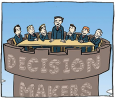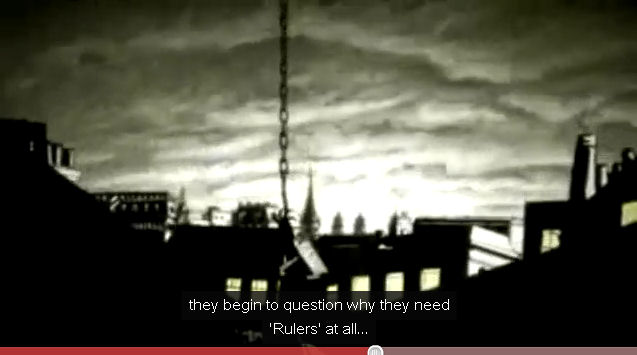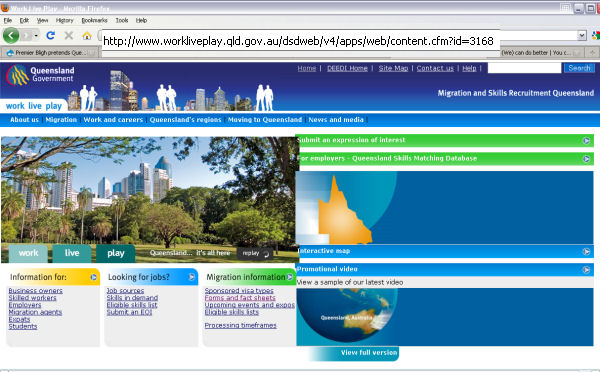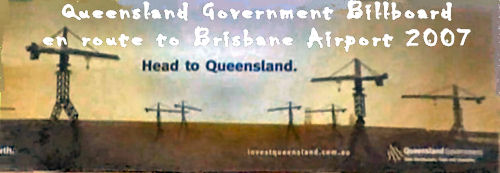Many ordinary people and committed activists are despairing of parliamentary democracy in its current form but say “What else can we do?” So many things just happen without us feeling that we have had any say at all or that our concerns have been completely ignored. Many of our friends are deeply disheartened. We say the community can no longer rely on our elected representatives to make objective and reasonable decisions on our behalf and we have to do something different. At the moment it is democracy in name only. We really have no control over our elected representatives from one election to the next, and we no longer have the time to be patient with them for 4 years at a time.
Here are our major points:
* It is clear that politely attending EES hearings, submitting thoughtful and well researched responses, running peaceful rallies, letter writing campaigns and using the law to try to protect the environment has become a useless exercise. Indeed it’s only function has perhaps become to furnishing government with its “community consultation” obligations. Blue Wedges for example has tried all of the above for the last 5 years, including collecting around 60,000 signatures on two petitions, 10,000 letters to MPs, and demonstrating to a Parliamentary Inquiry that a project has no economic credibility, but still the development juggernaut rolls on and over us. Government has managed to turn what appears to be detailed “community consultation” into a box ticking exercise. So, rather than continue to merely engage in government’s paradigm, we need to start the conversation about a different paradigm for decision making on important issues.
* Politicians have made themselves increasingly inaccessible and impervious to their constituents’ views – they are now mostly irrelevant to most of us most of the time. They are only responding to the growth lobby and a few other noisy, demanding, irrational but powerfully connected minority groups. Our current parliamentary system, where for the 4 years of their incumbency, and where a politician has no obligation whatsoever to vote according to how she/he campaigned and was elected, or how the majority of their constituents might subsequently ask them to vote is no longer serving a useful purpose for most of us.
* Old growth logging, the Tamar Valley pulp mill, the channel deepening issue, De-Sal, North-South pipeline, and of course Sustainable Population Australia (SPA) have all had well run campaigns aimed at engaging our local MPs and government to at least consider alternatives. The unpopular and unnecessary policies and projects just roll on.
* Most recently Planning Minister Madden has even ignored the recommendations of two EES Panel Inquiries, which recommended against the development of Bastion Point Mallacoota and the Crib Point bitumen plant. It’s obvious that parliamentary democracy and its underpinning administrative processes no longer serve us on so many social and environmental issues. As Cr. Rosemary West said at the Planning Backlash Rally on 10th June, “Were any of us asked whether we wanted 5 million people in Melbourne by 2030 (now 2020)?” We weren't asked, and in the case of population growth we weren't even really told what was going to happen.
* All levels of government in Australia have powers to initiate referenda on any issue. With the host of unrepresentative decisions being made by people elected by us perhaps it is time to look at alternative decision making processes.
* Unfortunately under existing arrangements, in Australia a referendum will only be held if a government or local council determines that a poll should be held on an issue. In Victoria we have provision for referendums but unfortunately the decisions are not binding on government.
* Referenda are already in use in a number of countries around the world, including Switzerland and many states in the USA, and Australia, where in recent times referendums have been conducted in Western Australia, Queensland and Victoria. Some countries have Citizen’s Initiated Referenda (eg. California USA) and some, like Australia only conduct a referendum if initiated by a council or government.
* The state-wide issue of whether to adopt daylight savings was recently decided via referendum in WA, as well a local issue in the City of Box Hill regarding liquor licenses. It would be relatively simple to organise voting on federal, state and local issues, as most people now either have Internet access via a home computer or mobile phone, or can access a computer via a public library. Electronic voting could be managed by voters using of a unique ID number such as tax file or Medicare numbers (no sillier than in the 21st Century still queueing up at the local school to have your name manually ticked off an electoral role).
* Referendums would need to be properly constituted, conducted by the VEC or the affected LGA. A properly constituted poll would be required to equally fund the for and against arguments, so that people could be properly informed, not marketed to. Candobetter Editor comment: Would this over-ride the mainstream press, which distorts every electoral issue by producing political options that it wants by restricting scope of argument? I suppose that what is being suggested here would at least help to combat commercial press propaganda.
* An electronic system could also present the ‘for and against’ argument equitably. It need not be compulsory to vote on every issue, but perhaps it could be organised so that a statistically significant sample is required to decide any outcome. I am sure that it is not beyond our capacity to devise a suitable system.
* Citizen’s Initiated Referenda is an ideal alternative to the present system and is currently operating in various democracies worldwide. (This is not the rather odd “People’s Mandate” idea promoted by some, which aims to collect signatures from over 50% of eligible persons to then invoke powers which have purportedly existed since Magna Carta. Blue Wedges sought legal opinion on the People’s Mandate and were advised, by the now President of the Court of Appeal that the People’s Mandate has no legal standing)
* CIR on the other hand is legally robust and already operating around the world. A CIR is determined to be conducted if 10% of eligible voters petition government to conduct a poll on a specific issue.
* CIR would have the benefit of providing direct democracy for all citizens and could eventually enable the abolition of state governments, which largely duplicate federal government bureaucracy and cost billions of dollars.
* New Zealand has CIR and has recently conducted two polls. One on the issue of whether parents should be allowed to use corporal punishment on their children and one on raising the minimum wage to $15 per hour. The result of the corporal punishment poll determined that parents should be allowed to smack their children, thus opposing the legislation that the government has just adopted, banning corporal punishment by parents. Unfortunately in NZ, CIR outcomes are not binding on government. To be effective of course CIR outcomes must be binding on government.
At the very least, perhaps our elected representatives should be required to conduct statistically robust polls in their electorate to guide their voting on issues currently before them in parliament. We understand Independent Victorian MP Craig Ingram did this on the recent abortion reform debate. His electorate overwhelmingly supported reform so that’s the way he voted. Other MPs of course proceeded with a “conscience” vote without any obligation whatsoever to consult or inform their electorate. As it stands, for most of the time that is precisely what most of them do – ignore almost everyone that voted for them!
The way things are at the moment, we will be fighting many unwanted policies and proposals in future and if nothing changes we will just keep on being ignored. From now on, when campaigning for the retention of something special, or against something dreadful, amongst all the points we make, why not take the opportunity to remind people that the conventional and proper methods for community input are being ignored by those “in control”, so we need to start thinking about a different way forward – otherwise it is a dead cert we will get what we DON”T want, the environment will be trashed, and those of us running the campaigns will get very depressed and worn out for no sum gain.
A component of all our current and future campaigns should be the message that “community consultation” is off the rails and heading for the cliff. We need somehow to take back control from those who purport to represent us, but are doing nothing of the sort. Otherwise we will just get steamrollered time and time again. We might not make a dent straight away, but sooner or later we just might if we keep giving it a go, and those who come after us will thank us!
We are still willing to believe that if given the facts, most people are capable of making a reasonable decision. If we think otherwise, and don’t trust our fellow citizens then we don’t believe in democracy either, and are just as bad as those we are currently criticising.
Written by Jenny and Len Warfe of the Blue Wedges organisation.


 Australia's construction industry is corrupt, but protected by government. This has left building consumers in a terrible situation. A current scandal is that they are being forced to pay billions for builders' mistakes in a situation where no building over 3 stories is insured. This video is of an interview with Nerrida Pohl about the dangers of inflammable cladding on skyscrapers, using her own building as an example. The location affords views of similar problems on surrounding skyscrapers in South Yarra. It also illustrates the irony of having one's view built out, even when one lives in a skyscraper, as massive population growth an deregulation accelerate infilling and raise heights. Nerrida was a speaker at the
Australia's construction industry is corrupt, but protected by government. This has left building consumers in a terrible situation. A current scandal is that they are being forced to pay billions for builders' mistakes in a situation where no building over 3 stories is insured. This video is of an interview with Nerrida Pohl about the dangers of inflammable cladding on skyscrapers, using her own building as an example. The location affords views of similar problems on surrounding skyscrapers in South Yarra. It also illustrates the irony of having one's view built out, even when one lives in a skyscraper, as massive population growth an deregulation accelerate infilling and raise heights. Nerrida was a speaker at the  An independent report on the economic situation on Norfolk Island following the Australian Government takeover of governance of the island last year, released today, warns the island’s economy is heading for disaster as a result of spiralling costs and inappropriate regulation. Problems include the widespread imposition of Commonwealth and NSW regulatory regimes; the planned introduction of Australia's Modern Award System; the failure of the Australian Government to take up the responsibilities previously held by the Norfolk Island Government, such as for the promotion of tourism; the loss of direct passenger airline services between New Zealand and Norfolk Island; restrictions placed on primary producers and agricultural pursuits; and the removal of the general revenue raising powers of the Norfolk Island Government.
An independent report on the economic situation on Norfolk Island following the Australian Government takeover of governance of the island last year, released today, warns the island’s economy is heading for disaster as a result of spiralling costs and inappropriate regulation. Problems include the widespread imposition of Commonwealth and NSW regulatory regimes; the planned introduction of Australia's Modern Award System; the failure of the Australian Government to take up the responsibilities previously held by the Norfolk Island Government, such as for the promotion of tourism; the loss of direct passenger airline services between New Zealand and Norfolk Island; restrictions placed on primary producers and agricultural pursuits; and the removal of the general revenue raising powers of the Norfolk Island Government.
 A small public garden at Healesville in Victoria has a plaque stating that the garden was planted in 1953 in commemoration of the coronation of Queen Victoria II. She was crowned in 1952, almost 65 years ago. For such a long time has she reigned; few regents could boast 65 years in office. And it is over us, Australians, that she reigns; quietly, discretely, non-politically - in the background. But will it always be so? Prince Charles has shown a disposition to make comments on political matters. Will he continue the monarchy in the same silent manner? Surely his time must come soon – no one lives forever. What will happen then? What could happen then?
A small public garden at Healesville in Victoria has a plaque stating that the garden was planted in 1953 in commemoration of the coronation of Queen Victoria II. She was crowned in 1952, almost 65 years ago. For such a long time has she reigned; few regents could boast 65 years in office. And it is over us, Australians, that she reigns; quietly, discretely, non-politically - in the background. But will it always be so? Prince Charles has shown a disposition to make comments on political matters. Will he continue the monarchy in the same silent manner? Surely his time must come soon – no one lives forever. What will happen then? What could happen then?  The period since the Murray-Darling Basin Authority released its guide to the proposed plan, nearly two years ago, has been marked by sustained outrage from all quarters.
The period since the Murray-Darling Basin Authority released its guide to the proposed plan, nearly two years ago, has been marked by sustained outrage from all quarters. 

 You can help bring Direct Democracy to Australia. To vote on this campaign go to
You can help bring Direct Democracy to Australia. To vote on this campaign go to 





 Sea-mink Extinguished by fur-trappers from
Sea-mink Extinguished by fur-trappers from 
Recent comments